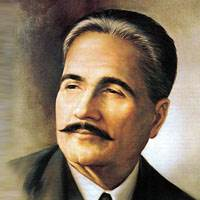
Introduction
Allama Muhammad Iqbal was Born on 9 November 1877 in Sialkot, now in Pakistan, Iqbal was descended from a Kashmiri Brahmin family which had converted to Islam a few generations ago.
He wrote ‘Saare jahan se achha’ — titled ‘Tarana-e-Hind’ — in 1904. It quickly became an anthem of opposition against the British Raj.
However, Iqbal’s philosophy soon transformed from a secular, Hindustan-first one to a religion-first one. In 1910, he wrote the ‘Tarana-e-Milli’ (Song of the community). The poem, written in the same metre and rhyme scheme as ‘Saare jahan se achha’, opened with the lines:
“Cheen-o-Arab humara, Hindostan humara
Muslim hain hum, watan hai saara jahaan humara.”
By the time he delivered the Allahabad address as president of the Muslim League in 1930, Iqbal had a fear, shared by many Muslims, that India’s Hindu-majority population would crowd out Muslim heritage, culture and political influence.
Iqbal suggested that there could be no peace in the country unless Muslims got their own, separate nation in the north-western part of undivided India. This was to become the basis for the two-nation theory that eventually led to the Creation of Pakistan after Independence.
Political Work
Politics was far from Iqbal’s primary occupation. He was a poet, philosopher, barrister and academic scholar, who was conferred the title ‘Allama’, an honorific given to learned, knowledgeable men.
Apart from the two famous taranas, Iqbal wrote a lot of poetry in Persian and Urdu, with some of the most prominent works being Asraar-e-Khudi, Rumooz-e-Bekhudi, Bang-e-Dara, Bal-e-Jibreel, Payaam-e-Mashriq, Zaboor-e-Ajm, Javed Naama, Zarb-e-Kaleem, and Armughaan-e-Hijaz.
One of his most famous poems is ‘Khudi ko kar buland itna’, which is not only oft-quoted in the subcontinent, but has also been set to music by many different artistes.
Two English language books are also credited to him — his Ph.D. thesis at the University of Munich turned into the treatise The Development of Metaphysics in Persia, while a collection of his lectures was published as The Reconstruction of Religious Thought in Islam.
Death and legacy
Iqbal died after an illness in Lahore on 21 April 1938. His tomb is located near the Badshahi Mosque and Lahore Fort.
Upon the formation of Pakistan, he was honoured as its national poet, as well as earning the titles ‘Mufakkir-e-Pakistan’ (thinker of Pakistan), Hakeem-ul-Ummat (sage of the Ummah), and Shayar-e-Mashriq (poet of the east).
His birthday, Iqbal Day, is observed as a public holiday in Pakistan.
Read More: Full Biography Allama Iqbal
 Quotes Love Poetry Romantic Sad Poetry – Funny Poetry
Quotes Love Poetry Romantic Sad Poetry – Funny Poetry
Great person and awesome poet of Pakistan. Allama Muhammad Iqbal.